Supreme Court Update: Gonzalez v. Trevino
Upcoming Events
Related News

Supreme Court Update: Gonzalez v. Trevino
COUNTY NEXUS
This case has implications for the ease with which private citizens can file frivolous retaliatory arrest claims against county law enforcement, which could lead to costly litigation for cities and counties and a chilling effect on public safety enforcement by county agencies.
BACKGROUND
To limit frivolous retaliatory arrest claims, the Supreme Court set a rule in Nieves: if the government can demonstrate that the law enforcement officer had probable cause to make the arrest, the claim is dismissed. They carved out one exception: if the plaintiff can prove that police officers typically choose not to arrest for this offense. In this case, Ms. Gonzalez' claim that she was arrested in retaliation for protected speech failed in the Fifth Circuit because there was indisputably probable cause in her arrest, which involved the illegal possession of government documents, and she could not provide specific examples of arrests that never happened to meet the Nieves exception. Ms. Gonzalez asked the Supreme Court to reverse the Fifth Circuit’s ruling and decide whether the probable-cause exception in Nieves should be broadened and whether or not Nieves should be limited to "split-second" arrests.
NACo ADVOCACY
In a Local Government Legal Center Amicus Brief in support of the respondent, NACo argued against both expanding the probable-case exception under Nieves and limiting the rule's application to a specific type of arrest, which would result increased liability and litigation costs for counties and could have a chilling effect on arresting officers because of an increase in retaliatory arrest claims.
CURRENT STATUS
On June 20, 2024, the Court issued a per curiam (unauthored) ruling in favor of the petitioner on the first question, suggesting that the Fifth Circuit's ruling went too far in demanding virtually identical and identifiable comparators to meet the threshold for the Nieves exception. The Court affirmed that any form of objective evidence is sufficient, and Gonzalez likely met this criteria by offering a survey of the types of crimes typically charged under the statute used in her case. While this decision means that more plaintiffs may be able to bring a retaliatory arrest claim under the Nieves exception by utilizing any form of objective evidence, the Court was careful to emphasize that the Nieves exception is narrow. Additionally, because the Court did not take up the second question, local governments may see future arguments by plaintiffs by plaintiffs that the requirement to plead and prove an absence of probable cause does not apply in non-split-second arrests. Learn more here.
2024-2025 Supreme Court Term
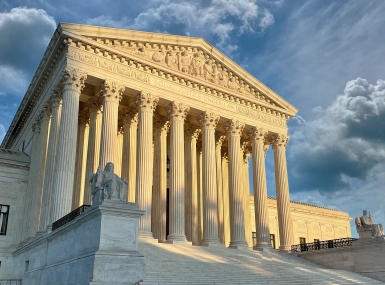
NACo Legal Advocacy: Ames v. Ohio Department of Youth Services
As one of the largest employers in the country, counties have a significant interest in cases like Ames v. Ohio Department of Youth Services (Ames v. Ohio) that could expand county liabilities as employers.

NACo Legal Advocacy: City of Buffalo et al. v. Kia/Hyundai
The question at hand in City of Seattle et al. v. Kia/Hyundai is whether or not the Federal Motor Vehicle Safety Standard preempts state tort claims brought forth by local governments alleging that Kia and Hyundai’s failure to install “reasonable” anti-theft technology constitutes negligence and public nuisance.
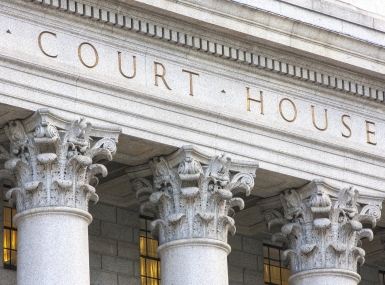
NACo Legal Advocacy: Perttu v. Richards
Perttu v. Richards has implications on the Prison Litigation Reform Act (PLRA) and could increase the amount of Section 1983 inmate-initiated cases against county jails that reach federal court, ultimately resulting in counties having to expend resources on frivolous lawsuits.

NACo Legal Advocacy: McLaughlin Chiropractic Associates, Inc. V. McKesson Corporation
McLaughlin Chiropractic Associates, Inc. V. McKesson Corporation could make it more difficult for counties to challenge FCC orders, many of which have taken steps to preempt and curtail local authority by limiting counties’ abilities to manage their own right of way and assess fair market value permitting and impact fees on providers seeking to construct, modify or extend telecommunications infrastructure in their communities.

NACo Legal Advocacy: San Francisco v. Environmental Protection Agency (EPA)
San Francisco v. Environmental Protection Agency (EPA) has implications for the ability of county governments that own and operate wastewater treatment facilities to comply with National Pollutant Discharge Elimination System (NPDES) permit requirements.
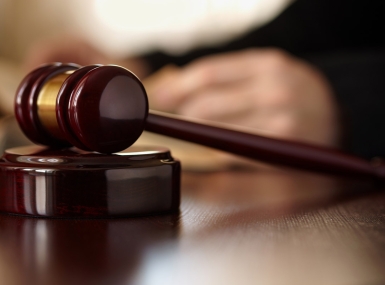
NACo Legal Advocacy: Lackey v. Stinnie
Lackey v. Stinnie will impact the ability of state and local governments to avoid paying litigation fees in a civil rights case if they change their conduct (i.e. repeal a law) after a court has granted a preliminary injunction.
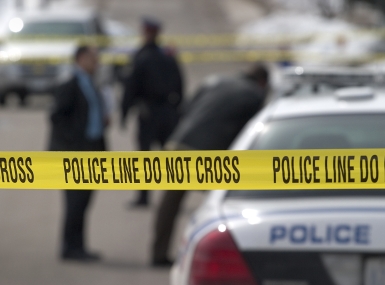
NACo Legal Advocacy: Bondi v. VanDerStok
Garland v. VanDerStok has implications for the ability of county law enforcement to uphold public safety and investigate crimes involving ghost guns.

NACo Legal Advocacy: Stanley v. City of Sanford
Stanley v. City of Sanford will impact the ability of county governments to balance budgets by reducing or eliminating post-employment benefits for disability retirees.
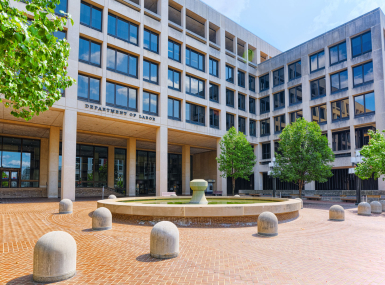
NACo Legal Advocacy: EMD Sales, Inc. v. Carrera
EMD Sales, Inc. v. Carrera could make it more difficult for county governments to prove exemptions under the Fair Labor Standards Act (FLSA), which would increase the potential for costly litigation.

NACo Legal Advocacy: Federal Communications Commission, et al v. Consumers' Research, et al
Federal Communications Commission, et al v. Consumers’ Research, et al. (FCC v. Consumers’ Research) could jeopardize what is known as the Universal Service Fund (USF). Through the USF, the FCC has provided billions of dollars to local governments and our residents, helping provide essential telecommunications and broadband services to unserved and underserved communities. FCC v. Consumers’ Research challenges the FCC’s legal authority behind the USF, putting multiple programs essential to equitable broadband deployment at risk.
Featured Initiative
Supreme Court Advocacy Hub
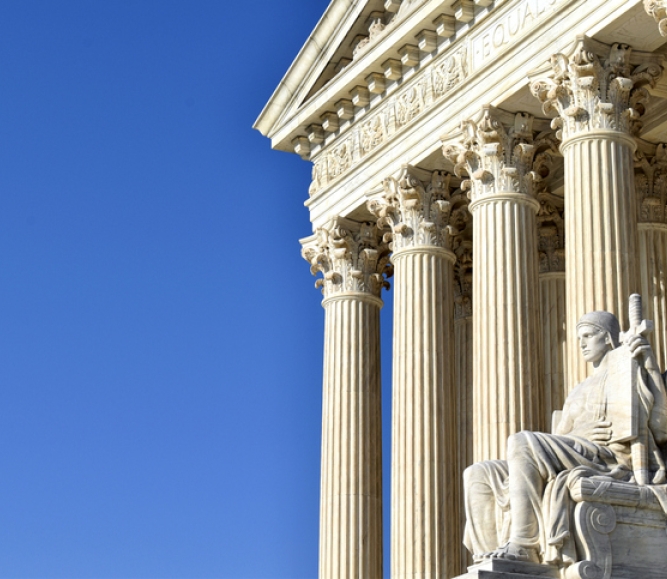
Advocacy
U.S. Supreme Court ruling may increase counties' exposure to retaliatory arrest claims
On June 20, the U.S. Supreme Court issued a per curiam (unauthored) ruling in Gonzalez v. Trevino, a case with implications for retaliatory arrest claims against local law enforcement.
